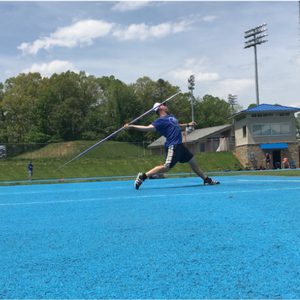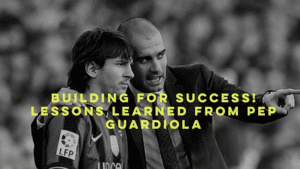Why do you coach? Is it for the money, or is it for the fulfillment of the job? For me, I want to make an impact in the life of my athletes. I’ve worked with a variety of athletes over the years, and have discovered separate primary objectives of working with different age groups. For my younger athletes, I want to give them what I wish I had received from a coach in my early days of playing. For older athletes, I want to help reignite a former passion or interest in their game, and do it in a safe way.
To be the optimal coach, you must understand your athletes. Plain and simple. If you do not understand
their purpose, their needs, and their tendencies, you will not be able to serve them. You must know
them beyond their sport to achieve success. As my athletes warm up to my coaching style, they warm
up to me as an individual. If their parents attend our practices, I make a conscious effort to get them involved and comfortable as well.
We all have our insecurities and if they’re not addressed, they can seep into our training. When I start working with a new athlete, they typically feel inferior in one aspect of their game or another. Their strength, technique, or ability to get the attention of their high school coach are some common examples. It is my job with each of my athletes—and a coach’s job in general—to identify their insecurity and help them move past it. If a negative attitude can dramatically affect performance, imagine the impact of a positive one.
To understand why your athlete acts the way they do, you need to speak with them about it. For them
to be comfortable speaking with you about their personality, they have to trust you. Trust is paramount to
any relationship, and only a true connection will have it. We can all remember what it was like when we
began playing our sport—we had to build up our confidence. Do you remember how you did that? Was it a coach? A parent? A teammate? Somebody along the way instilled the belief you found in yourself, and for them to help you grow your confidence, they had to understand you. To understand you, they needed to have a personal connection that would allow you to be vulnerable with them. Try being vulnerable yourself. Let your athletes know that they are not alone in what they are feeling and that they can find a path beyond their insecurity.
Brene Brown once said, “Courage starts with showing up and letting ourselves be seen.” Preach that to your athletes, and watch their confidence grow.

Daniel Freeman is a gold level track & field coach in the greater Philadelphia area. You can find his profile here and start booking sessions with him today!
How useful was this post?
Click on a star to rate it!
Average rating 5 / 5. Vote count: 2
No votes so far! Be the first to rate this post.




